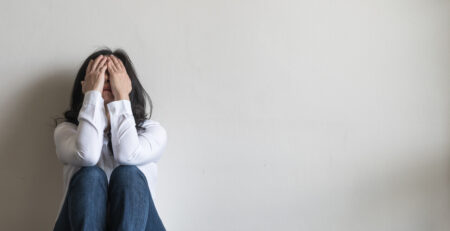Obsessive Compulsive Disorder: Finding OCD Counselling in Calgary
OCD (Obsessive Compulsive Disorder) is an acute cognitive ailment connected with severe levels of impairment. Some common symptoms include chronic doubts, excessive need for order, obsessive washing and cleaning, and unreasonable fear of germs, dust, and dirt. Thankfully, with the right treatments and obsessive-compulsive disorder counselling in Calgary, these symptoms can be manageable for many individuals diagnosed with OCD.
What is Obsessive-Compulsive Disorder?
Typically, OCD begins in teens and young adults, but it can and does happen in childhood. Initial complications often start out as mild irregularities in behaviour, such as:
- Cravings for reassurance from others
- Having intrusive thoughts that are hard to let go, e.g., something bad will happen, I will get sick, there is dirt/germs on those items
- Adherence strictly to routines or schedules that are not necessarily functional, such as always putting your right shoe on first or getting ready in the exact same order.
- Mild neuroticism
If left untreated, these mild complications can become inflated over time and evolve into more serious thoughts and actions such as:
- Overly obsessive control over the surrounding environment
- Extreme distress when items and objects aren’t placed in the “proper position”
- Visions of enacting violence upon others
- Ideas of yelling belligerent profanities in public spaces or doing something else that is embarrassing
How OCD is Diagnosed
Scheduling a session with a professional who provides OCD counselling in Calgary or another medical professional is the best way to determine if OCD is present. Typically, this process will include an interview with your counsellor or doctor, who will ask a series of questions related to your symptoms. The gold standard is to use the Yale-Brown Obsessive Compulsive Scale (there are both adult and pediatric versions), which helps identify obsessive thoughts as well as compulsive behaviours that counselling can target and provides a severity score that is useful to help form treatment recommendations. Other mental health disorders are common in individuals with OCD so a thorough mental health assessment that looks at mood and other types of anxiety disorders is also necessary. From there, your doctor, psychiatrist, psychologist, or counsellor will provide you with the final diagnosis.
Treating OCD
Deep-rooted research indicates that as much as 32% to 70% of people affected by OCD go through a suspension of the symptomatic effects. This entails that the possibility of regular health is not only realistic, but probable. OCD treatments come in a multitude of variations. Here are a few to consider:
Medication
Many medications and medicinal drugs have been approved by Health Canada to treat OCD. Many of these medications are categorized as antidepressants but are also approved for OCD treatment. The drugs work by amplifying the quantity of serotonin in the brain, a lack of which is often the underlying cause of OCD symptoms.
If conventional OCD treatment has been ineffective, then augmentation therapy could be a promising alternative. This procedure can be implemented to enhance the chances of alleviating indications of OCD. With augmentation therapy, a variety of drugs and medications are dispensed as opposed to singular drugs, working together to promote optimal results.
OCD Counselling
If OCD symptoms happen to be particularly strong and frequent, then attending OCD counselling in Calgary may be an effective form of treatment. There are two kinds of primary psychological therapy methods associated with the treatment of OCD: cognitive behavioural therapy (CBT) and response prevention therapy (ERP). The majority of individuals who go through either or both forms will typically become cognizant of a considerable reduction in both the regularity and the intensity of symptoms related to their OCD.
ACT (acceptance and commitment) therapy can be used as an adjunct to CBT and ERP. This is a fairly novel form of psychological therapy for OCD. The fundamental idea behind ACT is that worry and distress are natural components of living, which entails that it is our response to the anxiety-provoking situation that is at the heart of the issue.
Alternative Remedies
Approximately 25% to 40% of individuals won’t properly react to the therapies and medications discussed in this article. Usually, the OCD is quite severe and alternative treatments may be needed. A few of these alternatives are methods such as ECT (electroconvulsive therapy), as well as repetitive transcranial magnetic stimulation, in addition to deep brain stimulation. I
Research has indicated that methods aiming at certain circuits in the brain might be useful for minimizing some of the symptoms of OCD in individuals who saw no improvements using the initial treatment methods.
RTMS (repetitive transcranial magnetic stimulation) has gained substantial notoriety as a conceivable option to minimize the symptoms of OCD. But despite its promising potential, the proof has gained mixed reviews in regard to how effective it truly is as a treatment method.
Self-Help Tactics
Generally speaking, treating OCD will involve the authority and expertise of an experienced and licensed mental health expert. However, more natural methods have been reported to be helpful. There are several OCD self-help tactics you can implement to help you better cope with and handle your symptoms. Some of these include:
- Exercise
- Meditation
- Cold showers
- Muscle relaxation
- Mindfulness
Professional, Compassionate Obsessive-Compulsive Disorder Counselling in Calgary
While the symptoms of OCD can be debilitating, there are many options available for those who’ve been diagnosed with this disorder. While some find success with OCD counselling in Calgary, others may require alternative therapies or medications.
At The Family Psychology Place, our counsellors are committed to providing effective counselling for OCD in a safe, judgment-free space. Contact us to schedule an appointment.














